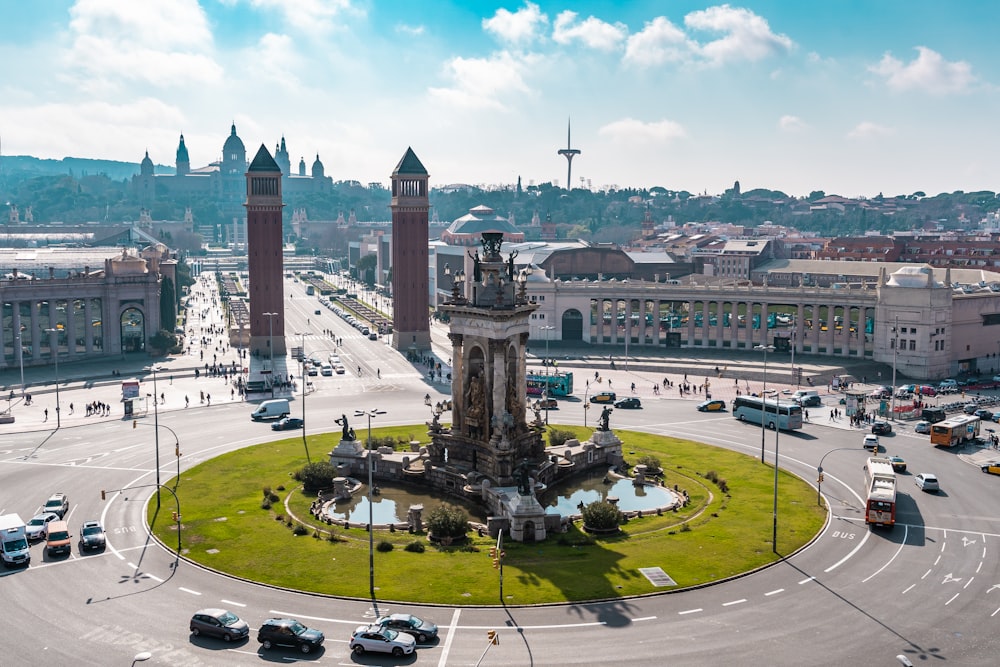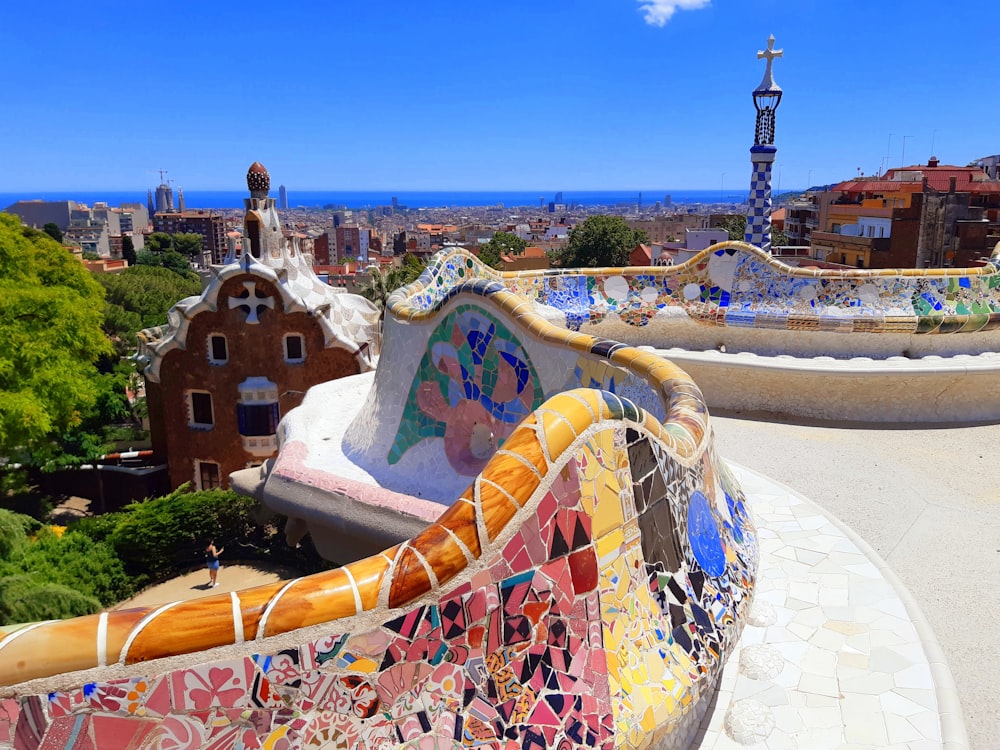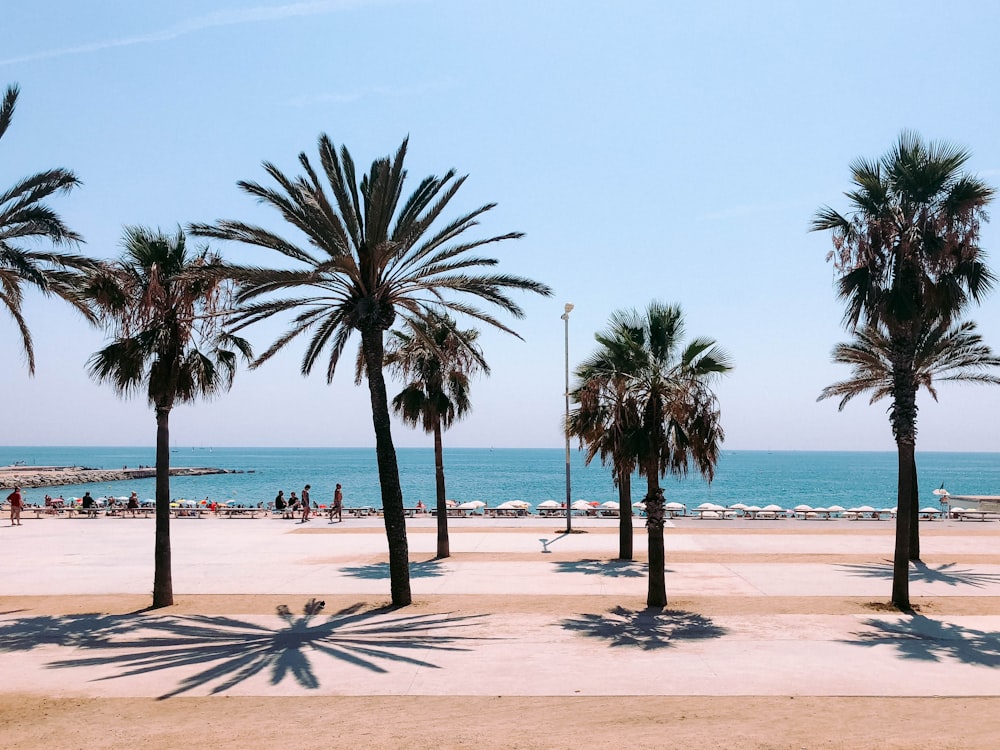Barcelona is the capital and best city of the Catalonia region of Spain. A beautiful metropolis facing the Mediterranean, living in Barcelona could be the change you are looking for.
Moving to Barcelona brings you nearer to amazing architecture, an electric lifestyle, and a local culture that is rich with history. Just be sure to do your research, as the cost of living in Barcelona can get a bit steep.
This guide will discuss the pros and cons of living in Barcelona and some additional advice to get you settled.
1. Be Sure You Read Up On The Pros and Cons of Living In Barcelona
Pros
The City’s Architecture Is So Beautiful
Barcelona is a cosmopolitan city with a rich history, and that history can be clearly seen through the architecture. Buildings in many different styles dot the city. Some of the most well-known are the works of Catalan Modernist Antoni Gaudí.
The Mediterranean Climate Make For Excellent Weather
Barcelona has great weather all year round. The ocean breeze from the Mediterranean regulates the weather, so hot summer months are bearable, and cool winters never go to the extremes.
The Geography Is Perfect For Recreational Activities
Barcelona faces the Mediterranean sea to one side and mountains to the other such as the Montserrat National Park and Montseny Natural Park. Whether you fancy going to the beach or a trek, either choice is nearby.
Cons
The City Can Get Crowded During Tourist Season
Barcelona is a top tourist destination for the region, and mass tourism can get streets congested. This also adds more traffic and can get stressful if you are not used to crowded spaces.
2. Familiarise Yourself With The Local Routes And Transportation
The quickest and easiest way to get around Barcelona is through the railway systems. The Metro, FGC, and Tram systems are available throughout the city. It’s best to check online schedules daily to ensure you get the most accurate information.
Buses are also a popular choice of travel in Barcelona. A fleet of 1000 buses runs all around the city through 100 different routes. From the many districts to the metropolitan area, the buses start serving at 5 am up until 11 pm. Past that night, buses are available starting 10:40 pm up until 6 am in the main city.
Taxis and ride-sharing services are also available, but at a higher price than trains or buses. If you’d like to catch a little exercise, you can also go about the city riding your bike. Barcelona is a very cycle-friendly city with a network of lanes running throughout it.
3. Take The Time To Research About The Neighbourhoods You Want To Live In And The Lifestyle You Want To Lead
When moving to a new country, picking the right city is important. But it’s also equally important which part of the city you will eventually settle in. Where are the quiet suburbs, the trendy city centres, and those neighbourhoods that sit right in the middle? Here’s a list of some places you should check out:
Eixample district is characterised by its straight streets and grid patterns. Eixample is a great choice as it is a very modern part of Barcelona while being home to many restaurants and shops and the iconic Sagrada Familia.
Barrio Gotico is perfect for those who enjoy a little bit of history. The old winding streets and many shops and cafes make for a very distinct stay at one of Barcelona’s top choices for expats.
Pedralbes is a residential area in the Les Corts district. With wide and open spaces, the elegant apartment buildings are a favourite for many expats.
Barceloneta is for those who want to live near the sea. With simple flats, apartments, and a very chill environment, Barceloneta is perfect for singles relocating to Barcelona.
4. Be Prepared As The Cost Of Living In Barcelona Is A Little Steep
Barcelona is the 2nd most expensive city in Spain. So, you might need to do a bit of budgeting. Still, Barcelona is not at the top of the list of the most expensive cities in Europe. To help you with budgeting, here are the average monthly costs for goods and rent in Barcelona.
A single person’s monthly costs estimate to be about 740 EUR without rent. You’ll need about 650 to 1220 EUR to fetch a one-bedroom apartment. For a small family of four, monthly costs average at 2,580 EUR excluding rent. The regular price for a three-bedroom apartment will cost anywhere between 1,100 to 2,325 EUR.
To save a few bucks, you can employ a few money-saving strategies. You can research local shops on where to buy cheaper groceries, use promotions such as free entrances to museums and tours, and even ride a bike or take a stroll more often.
5. Secure A Job For A Better Chance Of Permanent Residency
Despite some economic issues over the years, Spain has been able to keep a steady climb regarding employment, and the unemployment in Barcelona has decreased. As industries are gaining momentum, this is a very good indication that new job opportunities will arise. However, it is important to note that learning the local language of Catalán will net you a higher chance of getting employed.
Barcelona is noted for its chemicals, pharmaceuticals, and manufacturing industries. Service-related industries such as tourism, trade, and transport also show signs of further growth and will be a source of good jobs.
According to a study conducted by EAE Business school, Sales, Engineering, and Technology are the top three industries with the highest job demands. It is expected that these industries will continue to be the highest in demand, as well as emerging technologies such as big data, data science, and digital sales.
6. Get In Touch With The Locals Via Festivals And Traditions
When it comes to getting to know a city and the local people, joining local festivities is one of the best ways to go about it. Barcelona has had many festivals throughout the years, but here are some of the best ones you shouldn’t miss.
Carnival is held just before the season of Lent, and the population of Barcelona celebrates Carnival with much enthusiasm. Joining the La Gran Rua de Carnaval, the event’s finale is a sure-fire way to soak in all the fun of the festival.
Dia de Sant Jordi, or Saint George’s Day, is a unique Barcelona festival centred around books and flowers.
Festa de la Merce honours the patron saint of Barcelona. Aside from the usual fireworks and food, giant wooden sculptures called gegants i capgrossos are also made to join the fun.
Castellers de Barcelona is a truly exciting tradition in Barcelona where people build and climb human towers known as the castle.
Holi Festival of Colours Barcelona takes inspiration from the Holi festival of India and is the way for the people to welcome Spring.
7. Be Sure Go And See The World Famous Sights That Barcelona Has To Offer
Barcelona is a gorgeous city with so much character, especially in its landmarks. If you end up living in Barcelona, here are a few spots you need to head to immediately.
Basílica de la Sagrada Família, a UNESCO World Heritage Site, this iconic church has become a symbol for Barcelona. The distinct style and influence of its architect, Antoni Gaudí, can be seen all around the city.
La Rambla is a stretch of street that serves as the social hub of Barcelona with its many shops and restaurants.
Bogatell Beach is 600 metres long and one of the best beaches in Spain. Go for a quick trip if you want to take a dip.
Parc Güell is a 12-acre park that again features the distinct style of Antoni Gaudí in the form of fountains, staircases, and the Casa Museu Gaudí.
8. Don’t Let The Flavours Of Barcelona Escape You
Like other Mediterranean cities, Barcelona takes a lot of flavours and textures from the sea, resulting in food that is always top-notch. Coupled with access to great quality produce, then you have the makings of a delicious meal. In Barcelona, finding an inexpensive restaurant that sells the freshest and most delicious meal is no surprise. If you’re on a night out in the streets of Barcelona, try some of these dishes, and we’re sure you’ll be craving more.
- Seafood Paella is a rice-based dish that’s flavoured with saffron to give it that signature golden colour as well as different types of clams, mussels, and shrimp
- Pamtomaquet is a traditional Catalan bread with tomatoes drizzled with olive oil and salt
- Bombas are made from potatoes that are mashed, breaded, and then fried. They usually contain a meat-based filling.
- Jamón Iberico is known as the finest ham in the world and is made from Iberico pigs and has a long curing process.
- Crema Catalana is similar to crème brûlée but the Catalana variant is made from milk thickened with cornstarch.
9. Connect With Local Expat Communities And Make New Friends
Creating connections in a new city might be challenging. Some groups and forums are built to help you with this transition. Participating in these groups will make it easier for you to get to know new people, befriend the locals, and maybe even open certain opportunities.
Whether you can join physical gatherings and events or take the time to have conversations with people on online forums, the important thing is to start. Today, Barcelona has over 300 thousand expats calling it home. The communities are there to find like-minded expats; you just have to take the first step forward and find your new community.
10. Catch The Football Club Barcelona When You Have The Chance
Barcelona’s football club is legendary, and it would be wrong to live in the city without watching a game or two. Futbol Club Barcelona is one of the most famous football teams in the world and, among sports teams, one of the largest social media following worldwide. The international crowd just love Barcelona.
FC Barcelona plays in La Liga, the highest level in men’s professional football. Barcelona has two stadiums where you can catch their games, Camp Nou and Lluís Companys. If you have the chance to watch a game and join the excitement, give it a shot. You might find yourself moved by the Barcelona spirit.
11. Engage Professional Movers To Help With Your Relocation
Planning a trip is stressful enough, but when you’re moving to a different country, that is a big undertaking. There’s a lot of paperwork to sort out, tie up loose ends, and ensure your belongings are packed right and in the right place. Engaging with a moving company like Sanelo is your best next step.
Sanelo has years of experience helping people relocate both internationally and locally. Call or email us, and our representative will gladly help you through the process.
Conclusion About Moving To Barcelona
Moving to Barcelona allows you to live in a city with gorgeous architecture, a rich history, good weather, and vibrant culture while within driving distance of both beaches and mountains. The mix of different cultures also adds to the perfect backdrop for the electric nightlife that Barcelona has grown to be known for.
There are friendly neighbourhoods with so much personality, expat communities to build connections, and a selection of beautiful places to see. Barcelona has it all for you to live your best life.
If you’re still undecided and want to read more about locations similar to Barcelona, check out these guides on relocating to other Spanish cities Valencia, Granada, and Marbella.
Frequently Asked Questions About Moving/Relocating To Barcelona
Is Barcelona An Expensive City To Live In?
Barcelona can get expensive. It is the 2nd most expensive city to live in Spain. But compared to top cities in other European countries, living costs are still manageable.
Do People Speak English In Barcelona?
Yes, a vast majority of people speak English very well in Barcelona. The city is a popular tourist destination, so finding English-speaking expats will also be easy. However, if you plan to stay long term, learning Catalan’s local language is best.
Is The La Sagrada Familia In Barcelona?
Yes, the iconic Basílica de la Sagrada Família can be found in the Eixample district of Barcelona.
Is healthcare free in Barcelona?
Yes. There is a free public healthcare system available for residents. A Targeta Sanitaria Individual (TSI) is needed to avail of the service. This card identifies and indicates that a citizen is qualified for public health services. To get one, you must be a Spanish resident and pay contributions set by the Spanish government. Although others might still prefer private health insurance for the more specialised treatments.



